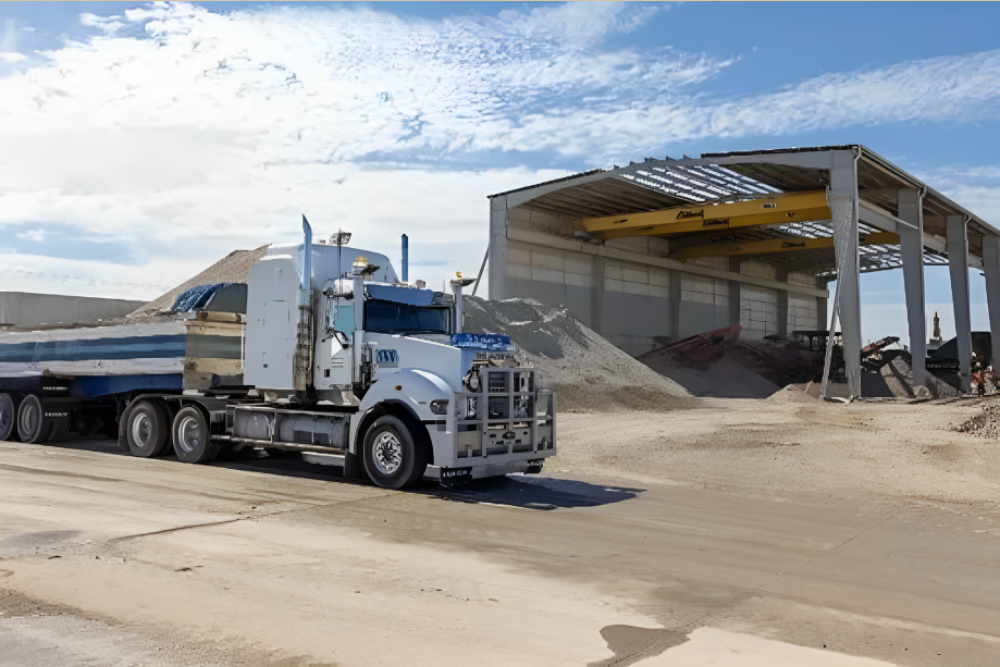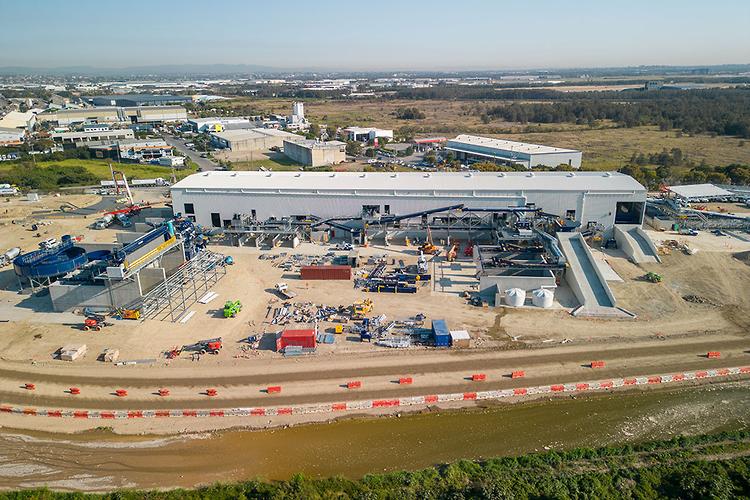Set to revolutionise construction and waste management, Pinkenba’s high-tech recycling plant leads the way to a sustainable future.
In a groundbreaking move set to redefine the construction and demolition (C&D) waste landscape, Brisbane is welcoming the world’s first high-tech automated recycling facility. Located in Pinkenba, this $95 million project is poised to revolutionise waste recovery rates and divert valuable resources away from landfills.
Cutting-Edge Technology for a Sustainable Future
The Pinkenba recycling plant is not just an ordinary waste management facility; it’s a symbol of innovation and progress in the construction industry. Boasting state-of-the-art automation, the facility can process construction and demolition waste at an unprecedented rate of 475 tonnes per hour. To put this into perspective, that’s equivalent to 68 truckloads every single hour.
The facility’s capabilities extend beyond sheer speed. With an impressive 97% recovery rate, the plant can recycle more than 1.5 million tonnes of waste annually. This includes the production of aggregates, sand, and road bases, all meeting the high standards of quarried materials.
A Green Circular Economy in Action
According to Dan Blaser, Rino Recycling General Manager, the plant exemplifies a green, circular economy in action. “In under 20 minutes, a truck can go from offloading construction waste and leave with a new load of high-quality, recycled products ready for the job site.”

Strategic Timing for Brisbane’s Growth
The opening of this recycling plant couldn’t come at a more crucial time for Brisbane. With major infrastructure projects on the horizon, including the 2032 Olympics, the SEQ city deal, and the Cross River Rail, waste management facilities are essential for supporting the city’s anticipated growth.
“Recycled First” Policy
This innovative recycling plant enables the government to adopt a “recycled first” policy in construction and waste management. By prioritising recycled materials, Brisbane aims to set a new standard for environmentally conscious building practices.
Environmental Impact: A Win for Brisbane
An independent report reveals that the plant is expected to reduce emissions by a staggering 55,000 tonnes per year. To put this into perspective, it’s equivalent to planting over 909,000 trees annually or removing more than 12,000 cars from the road. This remarkable reduction in environmental impact aligns seamlessly with global efforts to combat climate change.

Sustainability Beyond Recycling
The Pinkenba plant goes beyond recycling waste; it incorporates sustainability into its core. With an acre of rooftop solar panels, the facility ensures energy efficiency, while also recycling an impressive 35 thousand litres of water every hour, making it ‘water neutral’.
Meeting Environmental Objectives: Green Star Certification
As a testament to its commitment to environmental, social, and corporate governance (ESG) objectives, the plant has earned Green Star Certification. This certification not only positions the facility as a leader in sustainable practices but also aligns seamlessly with Brisbane’s commitments for the 2032 Olympics.
Construction Progress and Anticipated Completion
With construction well underway, steel beams were installed in October 2023, setting the stage for the final phases. The plant is expected to reach completion in late November 2023, marking the dawn of a new era in Brisbane’s construction and waste management practices.
As the city eagerly awaits the inauguration of this pioneering facility, the Pinkenba recycling plant stands as a beacon of progress, offering a glimpse into a future where sustainability and efficiency coexist harmoniously in the construction industry. The plant’s impact extends beyond Brisbane, setting a precedent for a global shift towards greener, more responsible construction practices.


